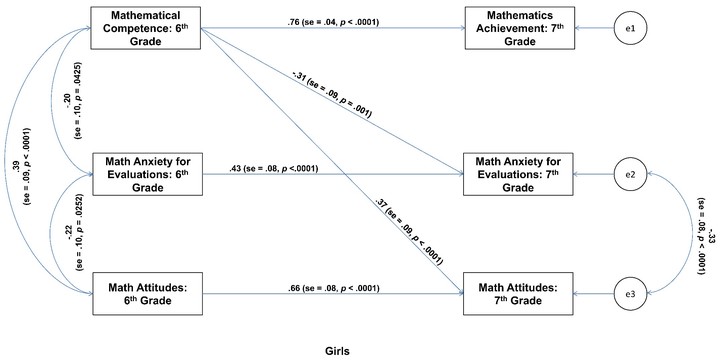Sex differences in mathematics anxiety and attitudes: Concurrent and longitudinal relations to mathematical competence

Abstract
Sex differences in the strength of the relations between mathematics and anxiety, mathematics attitudes, and mathematics achievement were assessed concurrently in sixth grade and longitudinally from sixth to seventh grade. Mathematics anxiety was composed of two facets, one associated with evaluations and the other for learning more generally. Girls had higher mathematics anxiety for evaluations than did boys, but not for mathematics learning. In sixth grade, the negative correlation between mathematical competence and mathematics anxiety for evaluations was stronger in girls than in boys. Longitudinally, higher mathematical competence in sixth grade was associated with lower mathematics anxiety for evaluations and better mathematics attitudes in seventh grade fro girls but not for boys. The key finding is that adolescent girls mathematics anxiety and their attitudes toward mathematics are more reflective of their actual mathematics competence than they are for boys. One implication is that relative to boys with low mathematics achievement, girls with low achievement are at higher risk of developing mathematics anxiety and poor attitudes toward mathematics.